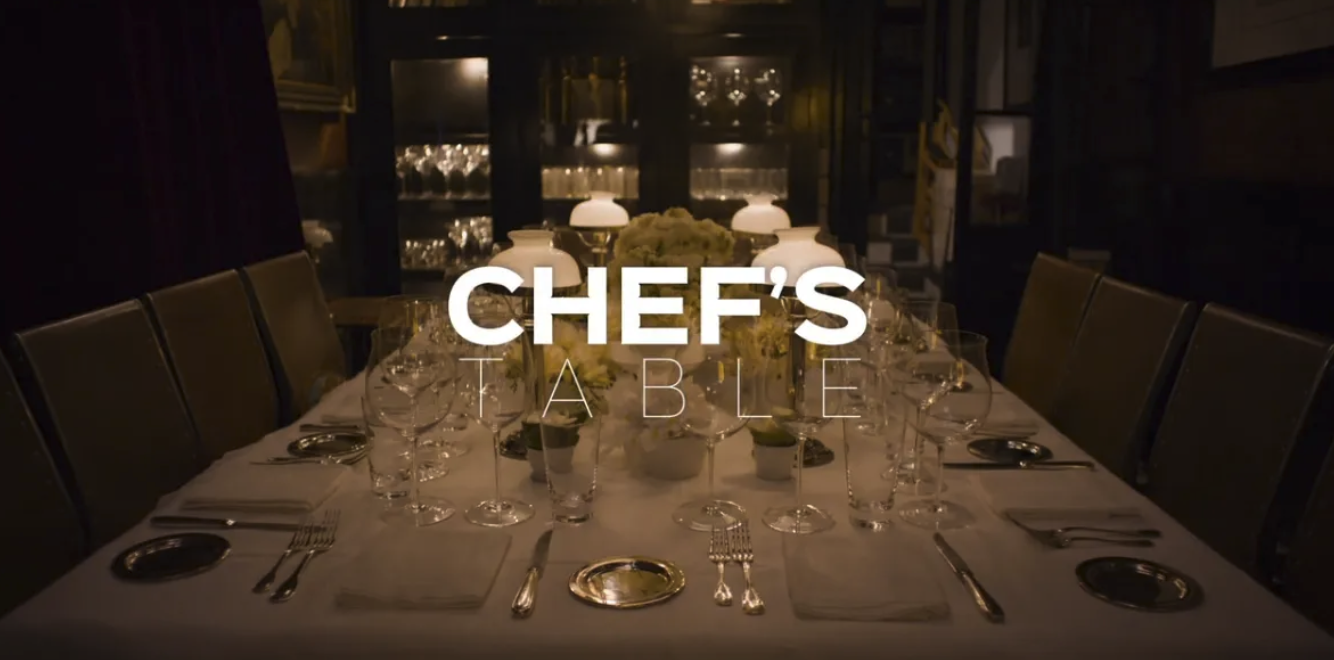6 Career Lessons from Netflix’s Chef’s Table
Netflix has reframed the way we interact with TV shows. Not only are we consuming more of them, but also we are demanding more from them. We expect them to make us feel and think new things, instead of just distracting us from our daily feelings and thoughts. We expect to actually learn from them.
There is no shortage of topics to dive into — relationships, justice, leadership… And then, there’s food. Probably the most popular theme of our time, it has been exploited from so many different perspectives that you can’t talk about a cooking show without getting the “oh no, not this again” look. But then, there’s Chef’s Table. This is no regular cooking show. Chef’s Table took the learning experience to a whole new level by immersing its audience into the lives of the most prominent Chefs in the world. And they have a lot to teach us. These are not recipes for success, these are real-life lessons on career management.
1. Be provocative
Massimo Bottura’s tribute-book to Osteria Francescana is called “Never trust a skinny italian chef” and that was exactly what people did when he first opened his restaurant in 1995 in the medieval city centre of Modena. After all, he had dared to question the unquestionable: the Italian cuisine itself. His signature dishes challenged ancient traditions and he dealt with strong resistance as a result. It took him several years, strong persistence from his wife and a car accident that brought one of the most important food critics to his restaurant to turn things around. Today, Osteria Francescana is the Best Restaurant in the World. Massimo says that people just weren’t ready. But to create something new, you need to challenge the status quo.
2. Fall in love with learning
Dan Barber fell in love with a fish. How the hell did that happen?, you wonder. Well, to him, “the more you get to know the fish, the more you love the fish”. And his curiosity is restless. When he cares about something, he really goes deep into understanding its roots and how he can improve it. The fish romance is not mentioned on Chef’s Table, but the bread love story is. In the early 1990s, he was fascinated with bread and managed to get a job at the most prominent bakery at the time. He got fired because apparently he wasn’t as good at it as he thought he was, and his passion got even more inflamed: he decided he would learn everything there was to learn about making bread. Recently, he teamed up with Dr. Stephen Jones from Washington State University to be part of the Bread Lab. Everything you do, every person you meet, every experience you have, represents an opportunity for learning. As Dan puts it, it is your responsibility to learn.
3. Find out who you are
Francis Mallman may be considered an expert at cooking with fire, but it took him a while to get his own fire started. At an early stage of his career, he was serving French food in Argentina when the head of Cartier visited his restaurant. By the end of the meal, he called Mallman to tell him that, despite his visible efforts to master the French cuisine, he was not doing it right. Mallman realized that he had been trying to copy his Masters and that he needed to find his own language. In 1995 he won the Grand Prix de La Cuisine after serving a potato-tribute menu and he realized he wanted to use cooking to honor his roots and send a message of his way of living. It wasn’t easy for him because the prize had set big expectations about what he would do next, but he had the courage to be faithful to himself and to live by his own rules. Today he travels the world cooking with Argentinian ingredients and ancient techniques in the most remote locations. So if you’re trying to figure yourself out, take your time. What you do in life should be a reflection of who you are.
4. Take care of people
Niki Nakayma also took a while to go from having to prove herself to enjoying herself in the kitchen. It took her graduating from culinary school, working at a prestiged sushi restaurant, moving to Japan, returning to Los Angeles and opening her first and second restaurants to finally come to fulfill her vision at n/naka, the best restaurant in Los Angeles. There, she was finally able to create a personal, unique experience for each customer, every single time they visit the restaurant. To make that possible, her staff keeps track of everything customers eat and when they come back the menu is planned before service, to make sure that they aren’t served the same meal twice. Success is also a matter of nurturing — and surprising — people.
5. Don’t forget your family
Ben Shewry experienced intense failure while working round-the-clock to avoid going broke. While customers were absent from his restaurant, he was absent from his family’s life. He was resenting work, and his family was resenting him. He started thinking about his own childhood and realized that the one of the biggest gifts he got from his parents was time. One day he decided to attend a game of his son’s basketball team. He was surprised by the fact that they played really well and even more by the fact that they had no coach. So he took the lead and he immediately started to feel joy outside of cooking. He realized that he wouldn’t be able to create something significant unless he was happy with his life. Your family, the people you chose to surround yourself with, are your true team. As Ben puts it, they don’t care about the prizes you win or if you’re full of customers, they only care if you’re a decent person. And that is the basis for creating something meaningful to yourself and to others.
6. Create your place in History
For Magnus Nilsson, in cooking, as in any creative craft, what is produced is a reflection of the person producing it and everything that person has experienced. He was born, raised and educated in Sweden. After school, he moved to Paris and never thought of coming back. Three years later he was back in Sweden and so frustrated with the scarcity of fresh ingredients that he almost quit cooking. He eventually found his way back to the kitchen and became a strong advocate for local sourcing, and instilled practices of harvesting and foraging food during the warm months to preserve them through the rigorous winters. Magnus’ story brings us back to Massimo Bottura. To make history, you need to be mindful of your roots, of your community’s history and traditions, but you also need to be ready to challenge them.
Chef’s Table transforms world-renowned Chefs into normal people that you actually can relate to and learn from. Season 2 is already out so stay tuned…


